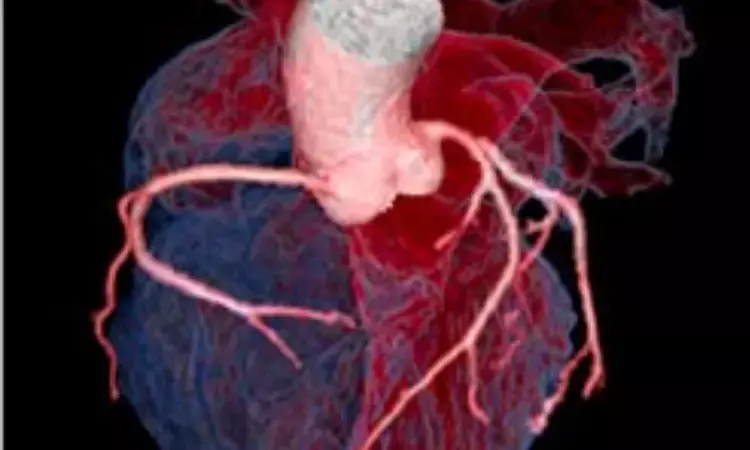- Home
- Medical news & Guidelines
- Anesthesiology
- Cardiology and CTVS
- Critical Care
- Dentistry
- Dermatology
- Diabetes and Endocrinology
- ENT
- Gastroenterology
- Medicine
- Nephrology
- Neurology
- Obstretics-Gynaecology
- Oncology
- Ophthalmology
- Orthopaedics
- Pediatrics-Neonatology
- Psychiatry
- Pulmonology
- Radiology
- Surgery
- Urology
- Laboratory Medicine
- Diet
- Nursing
- Paramedical
- Physiotherapy
- Health news
- Fact Check
- Bone Health Fact Check
- Brain Health Fact Check
- Cancer Related Fact Check
- Child Care Fact Check
- Dental and oral health fact check
- Diabetes and metabolic health fact check
- Diet and Nutrition Fact Check
- Eye and ENT Care Fact Check
- Fitness fact check
- Gut health fact check
- Heart health fact check
- Kidney health fact check
- Medical education fact check
- Men's health fact check
- Respiratory fact check
- Skin and hair care fact check
- Vaccine and Immunization fact check
- Women's health fact check
- AYUSH
- State News
- Andaman and Nicobar Islands
- Andhra Pradesh
- Arunachal Pradesh
- Assam
- Bihar
- Chandigarh
- Chattisgarh
- Dadra and Nagar Haveli
- Daman and Diu
- Delhi
- Goa
- Gujarat
- Haryana
- Himachal Pradesh
- Jammu & Kashmir
- Jharkhand
- Karnataka
- Kerala
- Ladakh
- Lakshadweep
- Madhya Pradesh
- Maharashtra
- Manipur
- Meghalaya
- Mizoram
- Nagaland
- Odisha
- Puducherry
- Punjab
- Rajasthan
- Sikkim
- Tamil Nadu
- Telangana
- Tripura
- Uttar Pradesh
- Uttrakhand
- West Bengal
- Medical Education
- Industry
Routine use of early CT angio not recommended for suspected ACS: BMJ

UK: Findings from a recent study in the British Medical Journal (BMJ), recommends against the use of early computed tomography (CT) coronary angiography in intermediate-risk patients with acute chest pain and suspected acute coronary syndrome.
According to the study, early CT coronary angiography had no effect on the overall treatment and prevention of the disease or one-year outcomes. Moreover, it was associated with an increase in the length of hospital stay.
Randomized controlled trials have shown that in stable chest pain CT coronary angiography increases the diagnosis of coronary artery disease (CAD), leading to more coronary revascularization, more prescriptions of preventive treatments (aspirin and statins), and lower rates of subsequent death from coronary heart disease or non-fatal myocardial infarction. There is no definitive evidence that the use of CT coronary angiography affects clinical outcomes in patients presenting with acute chest pain although, its use has been associated with shorter lengths of stay and increases in the use of invasive angiography and coronary revascularization in those at very low risk.
The recent international guideline has suggested the use of CT coronary angiography for investigating underlying coronary artery disease in intermediate-risk patients with acute chest pain although the benefits of this strategy are unknown.
Against the above background, Alasdair J Gray, honorary professor, and consultant in emergency medicine, University of Edinburgh, Edinburgh, UK, and colleagues aimed to establish if the use of early CT coronary angiography improves one-year clinical outcomes in patients presenting to the emergency department with acute chest pain and at intermediate risk of the acute coronary syndrome and subsequent clinical events.
For this purpose, the researchers designed a randomized controlled trial set across 37 hospitals in the UK. It included adults with suspected or a provisional diagnosis of acute coronary syndrome and one or more of previous coronary heart disease, raised levels of cardiac troponin, or abnormal electrocardiogram.
Between 23 March 2015 and 27 June 2019, 1748 participants (mean age 62 years, 64% men, mean global registry of acute coronary events (GRACE) score 115 (standard deviation 35)) were randomized to receive early CT coronary angiography (n=877) or standard of care only (n=871). The median time from randomization to CT coronary angiography was 4.2 hours.
The primary endpoint was all-cause death or subsequent type 1 or 4b myocardial infarction at one year.
Key findings include:
- The primary endpoint occurred in 5.8% of participants randomized to CT coronary angiography and 6.1% of participants who received standard of care only (adjusted hazard ratio 0.91.
- Invasive coronary angiography was performed in 54.0% of participants randomized to CT coronary angiography and 60.8% of participants who received standard of care only (adjusted hazard ratio 0.81).
- There were no overall differences in coronary revascularisation, use of drug treatment for acute coronary syndrome, or subsequent preventive treatments between the two groups.
- Early CT coronary angiography was associated with a slightly longer time in the hospital (median increase 0.21 days from a median hospital stay of 2.0 to 2.2 days).
"In intermediate-risk patients with acute chest pain and suspected acute coronary syndrome, early CT coronary angiography did not alter overall coronary therapeutic interventions or one-year clinical outcomes, but reduced rates of invasive angiography while modestly increasing length of hospital stay," wrote the authors.
"These findings do not support the routine use of early CT coronary angiography in intermediate-risk patients with acute chest pain and suspected acute coronary syndrome," they concluded.
Reference:
Gray A J, Roobottom C, Smith J E, Goodacre S, Oatey K, O’Brien R et al. Early computed tomography coronary angiography in patients with suspected acute coronary syndrome: randomised controlled trial BMJ 2021; 374 :n2106 doi:10.1136/bmj.n2106


